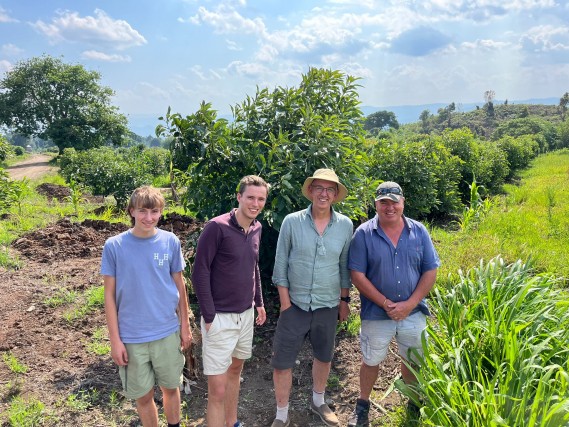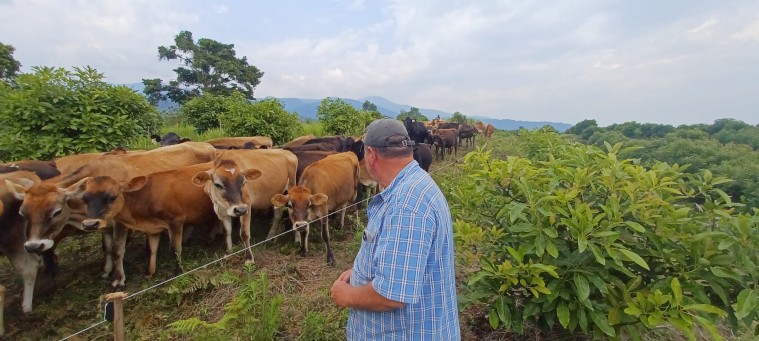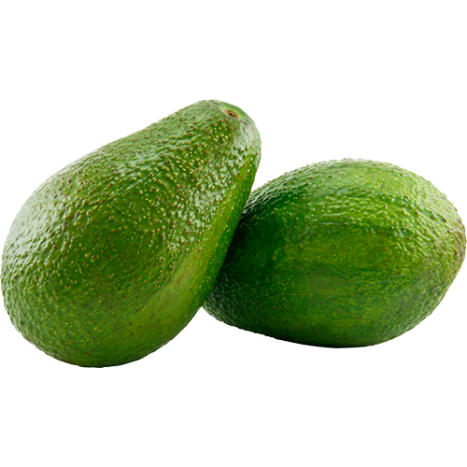Their journey into organic farming stems from a deep respect for the land and a commitment to sustainability. Nestled in the fertile volcanic soils of Rungwe, their farm thrives in harmony with nature, benefitting from abundant rainfall that allows them to cultivate Raingrown avocados without the need for irrigation. This practice not only preserves water resources but also ensures their farming methods align with their philosophy of environmental stewardship.
Their team of over 300 workers is integral to their success. With dedication and care, the workers ensure that every avocado is harvested at peak ripeness and packed to the highest standards. The Cloves also prioritize ethical farming practices, providing fair wages, health insurance, and social security to their employees, further supporting the local community.

Robert Cloves
Hi, we’re Robert and Petra Cloves, proud organic farmers in the Rungwe region of Tanzania. Together with our dedicated team, we grow, pack, and export organic avocados that thrive in harmony with nature. Thank you for choosing our products and supporting sustainable farming!
N&M: What motivated you to start with the production of organic avocado?
Robert: I was inspired by the challenges we faced with Phytophthora, a devastating fungal disease, on our farm. Moving to organic farming in 2016 not only addressed the issue effectively but also opened my eyes to the long-term benefits of regenerative practices for both the soil and the environment.
N&M: How does the unique climate and soil in Rungwe enable you to produce Raingrown avocados without the need for irrigation?
Robert: The combination of volcanic soils and an annual rainfall of 2,000 mm provides the perfect conditions for avocado cultivation without any irrigation. This not only reduces costs but also aligns with our sustainable farming practices. The natural precipitation supports the trees during critical growth stages, allowing us to produce high-quality Raingrown avocados while preserving water resources.
N&M: Organic farming requires a different mindset from conventional farming. What was your experience during your transition to organic production?
Robert: The transition was both challenging and rewarding. Initially, it required a lot of experimentation, especially in understanding how to manage pests and diseases organically. However, seeing the improved health of our soil and the quality of our produce convinced me that this was the right path
N&M: Why did you choose to settle and farm in Rungwe, Tanzania, after leaving Zimbabwe?
Robert: Rungwe offers volcanic soils, high altitudes, and abundant rainfall, making it an ideal location for avocado farming. The proximity to the Rungwe natural forest reserve adds a unique ecological balance to our farm
N&M: Can you tell us more about the role of workers on your farm and your approach to their welfare?
Robert: We employ around 100 fixed workers and 200 seasonal workers during peak harvest. While we meet the basic wage requirements, we're continuously striving to improve their livelihoods through health insurance, social security, and certifications like SMETA.









